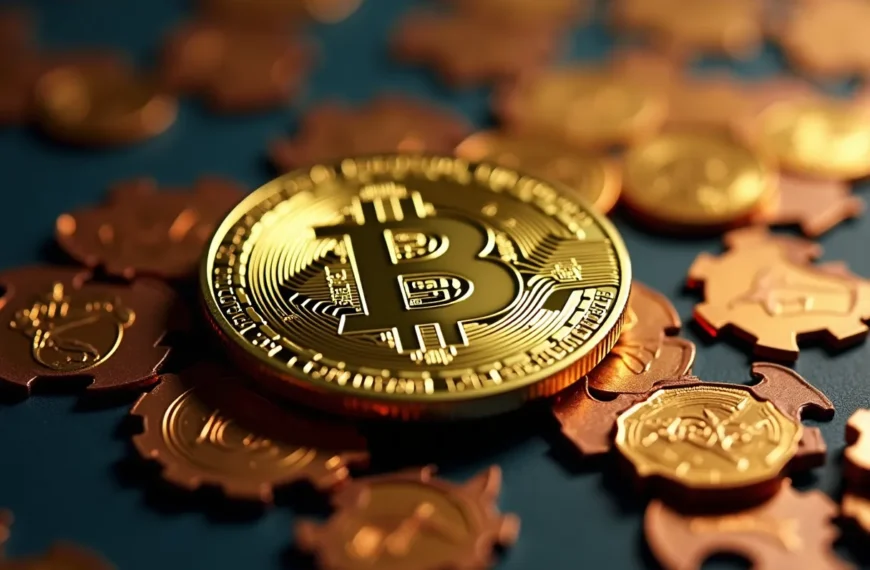What is a Strategic Bitcoin Reserve? How Nation States Could Hold BTC
In recent years, Bitcoin has emerged as a significant player in the global financial landscape. As cryptocurrencies gain popularity, discussions around their potential role in national reserves have intensified. Proponents of a strategic Bitcoin reserve argue that nation states should stockpile Bitcoin alongside traditional assets such as gold. This article explores the concept of a strategic Bitcoin reserve, its implications for countries, and the potential benefits and challenges associated with holding BTC as part of a national asset portfolio.
The Concept of a Strategic Bitcoin Reserve
A strategic Bitcoin reserve refers to the idea that countries should accumulate Bitcoin to diversify their reserve assets. As the world’s first decentralized cryptocurrency, Bitcoin has proven to be a store of value over the years. With its finite supply of 21 million coins and increasing demand, many believe that Bitcoin can serve as a hedge against inflation and economic instability.
Key Elements of a Strategic Bitcoin Reserve:
Why Should Nation States Consider Holding Bitcoin?
The rationale behind accumulating Bitcoin as a part of national reserves is multifaceted. Below are several compelling reasons why nation states should consider implementing a strategic Bitcoin reserve.
1. Protecting Against Economic Uncertainty
In a world where economic volatility is increasingly common, holding Bitcoin can offer nations a buffer against unforeseen financial crises. Traditional fiat currencies are subject to inflation, devaluation, and other economic pressures. By investing in Bitcoin, countries can potentially safeguard their wealth and ensure financial stability for their citizens.
2. Enhancing National Sovereignty
As cryptocurrencies operate outside the control of central banks and traditional financial institutions, they can enhance a nation’s financial sovereignty. This independence from conventional banking systems allows governments to have more control over their financial policies and economic outcomes.
3. Attracting Investment
Countries that openly embrace Bitcoin and other cryptocurrencies may attract foreign investment. This can lead to economic growth and technological innovation, as businesses and entrepreneurs flock to jurisdictions that support digital asset adoption. A strategic Bitcoin reserve can signal to the global market that a nation is forward-thinking and ready to embrace the future of finance.
4. Digital Transformation and Innovation
By holding Bitcoin, nations can position themselves at the forefront of the digital economy. This move can encourage the development of blockchain technology and other innovations that can drive economic growth. Additionally, adopting a strategic reserve can foster a tech-savvy workforce and stimulate job creation in emerging sectors.
Challenges of Implementing a Strategic Bitcoin Reserve
While the benefits of a strategic Bitcoin reserve are compelling, there are significant challenges that nations must consider before proceeding.
1. Volatility and Risk Management
Bitcoin is known for its price volatility, which can pose risks for countries that decide to hold it as a reserve asset. The value of Bitcoin can fluctuate dramatically in short periods, potentially leading to significant financial losses. Nations must implement robust risk management strategies to mitigate these risks and ensure that Bitcoin does not destabilize their overall financial health.
2. Regulatory Concerns
The regulatory landscape surrounding cryptocurrencies is still evolving. Nations must navigate complex legal frameworks and ensure compliance with international regulations. This can be particularly challenging, as different countries have varying approaches to cryptocurrency regulation.
3. Public Acceptance and Understanding
For a strategic Bitcoin reserve to be successful, there must be public acceptance and understanding of cryptocurrencies. Governments need to educate their citizens on the benefits and risks associated with Bitcoin, as well as how it fits into the broader financial system. This requires effective communication and transparency to build trust in digital assets.
Examples of Countries Considering Bitcoin Reserves
While the concept of a strategic Bitcoin reserve is still in its infancy, several countries have begun exploring the possibility of incorporating Bitcoin into their national asset portfolios.
1. El Salvador
El Salvador made headlines in 2021 by becoming the first country to adopt Bitcoin as legal tender. The government has also been purchasing Bitcoin to build a national reserve. This bold move has sparked debate about the viability of Bitcoin as a reserve asset and its implications for the country’s economy.
2. Central African Republic
In early 2022, the Central African Republic announced plans to adopt Bitcoin as legal tender, following in El Salvador’s footsteps. This decision aims to enhance financial inclusion and attract foreign investment, showing that even smaller nations are considering Bitcoin as an integral part of their economic strategy.
The Future of Strategic Bitcoin Reserves
As the world continues to embrace digital currencies, the idea of a strategic Bitcoin reserve will likely gain traction among nation states. The potential for Bitcoin to serve as a stable and valuable asset in times of economic uncertainty is undeniable. However, nations must weigh the benefits against the challenges and risks involved in holding Bitcoin as part of their reserves.
In conclusion, a strategic Bitcoin reserve could reshape how nations manage their financial assets in an increasingly digital world. Countries that recognize the potential of Bitcoin and take proactive steps to incorporate it into their economic strategies may find themselves better positioned for the future. As the cryptocurrency landscape evolves, it will be fascinating to see how nation states adapt and respond to the opportunities presented by Bitcoin and other digital assets.






